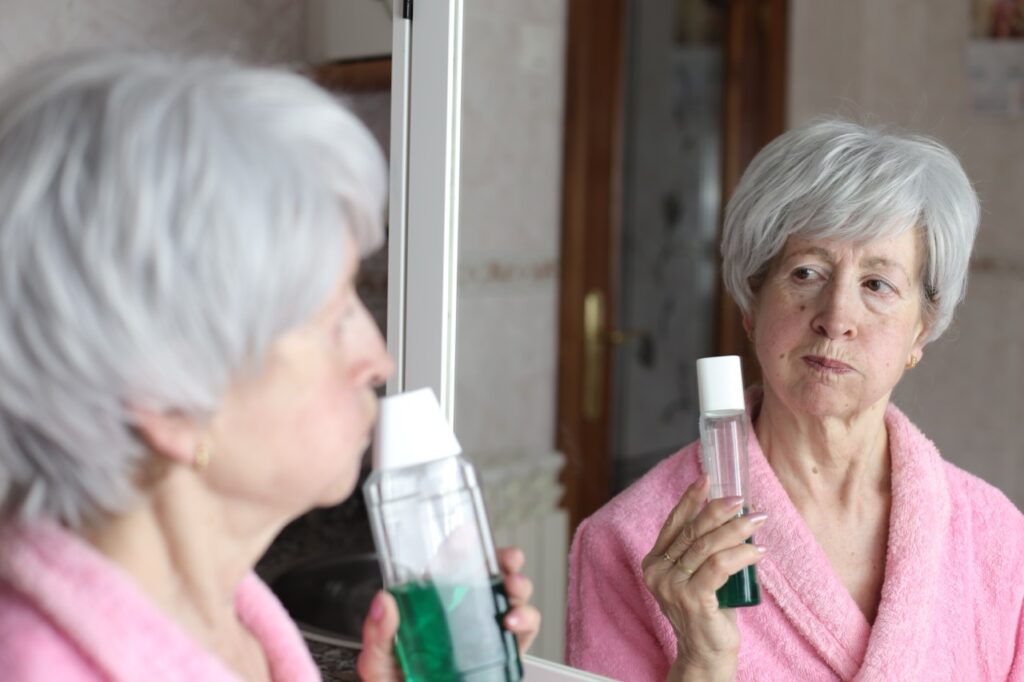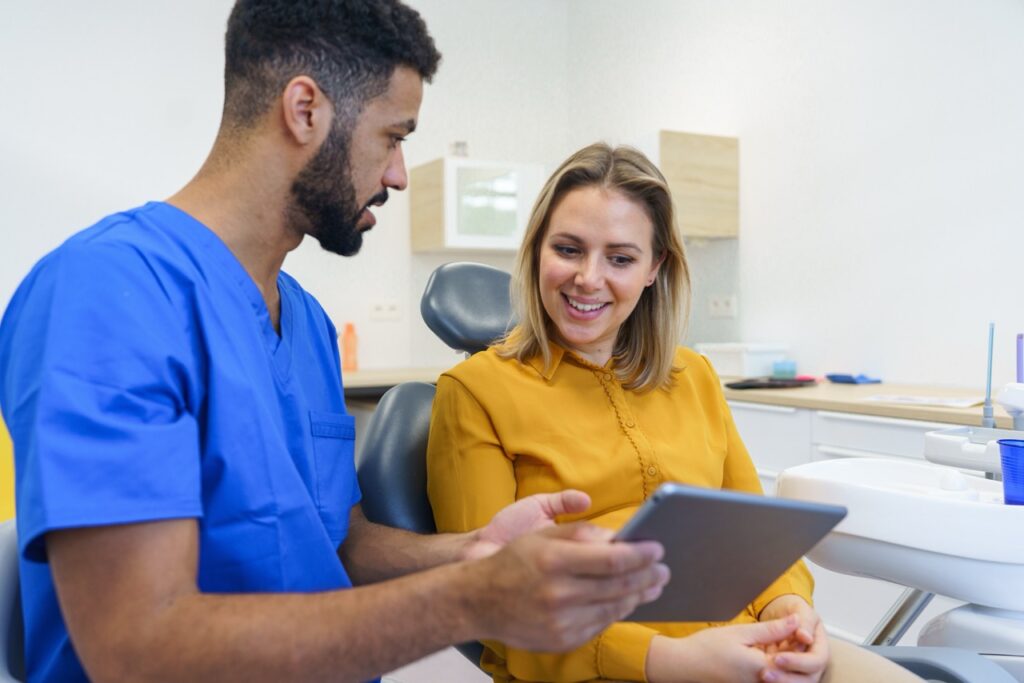Resource Library
Start Reading
Your mouth is an ecosystem bustling with billions of bacteria. This complex community of bacteria, fungi, and viruses is your oral microbiome, and keeping it in balance is essential for your good health. When it’s thrown off-kilter, the consequences can be serious, both for your mouth and beyond.
Dr. Modupe Coker is, among other roles at Penn Dental Medicine, Director of the Center for Clinical and Translational Research (CCTR). She recently answered some questions about what the oral microbiome is and the most effective ways of keeping it healthy.
Watch the interview, then read on for practical ways of keeping your oral microbiome, and yourself, as healthy as possible.
The oral microbiome consists of more than 700 species of microorganisms that colonize your mouth’s surfaces. These microbial communities play vital roles in digesting food, training your immune system, and protecting you from invading pathogens.
Dr. Coker says the oral microbiome contains “good bugs” and “bad bugs.” Beneficial bacteria, like certain strains of Streptococcus, help maintain a neutral pH and produce compounds that inhibit pathogens. But harmful bacteria like Streptococcus mutans metabolize sugar into acid, leading to cavities, while others like Porphyromonas gingivalis are linked to periodontitis (gum disease).
When the oral microbiome is healthy and well-balanced (homeostasis), “good” and “bad” bugs peacefully coexist. When the balance is disrupted (dysbiosis), pathogenic, harmful bacteria flourish.
 The bacteria in our mouths form the sticky biofilm known as dental plaque. When the oral microbiome is unbalanced, plaque grows thick and is dominated by harmful bacteria. These bacteria produce toxins that inflame the gums.
The bacteria in our mouths form the sticky biofilm known as dental plaque. When the oral microbiome is unbalanced, plaque grows thick and is dominated by harmful bacteria. These bacteria produce toxins that inflame the gums.
Left unchecked, gum inflammation can progress to periodontitis, a serious infection that damages soft tissue and bone supporting the teeth. Periodontitis is a widespread problem; about 40% of U.S. adults alone have mild, moderate, or severe levels.
Harmful oral bacteria also produce acids that erode tooth enamel. Over time, this erosion can contribute to cavities and increase the risk of tooth fractures. Such advanced dental treatments as fillings, crowns, or even extractions may become necessary.
“Enamel is one of the hardest bone structures of the body,” Dr. Coker points out. “Any biofilm strong enough to destroy it should be something you should be paying attention to.”
“It absolutely matters, because the oral cavity is a central part of the body,” says Dr. Coker. “It’s the beginning of the gastrointestinal tract.” Microbes swallowed with saliva constantly influence the gut microbiome. An imbalanced oral microbiome can seed the gut with inflammatory bacteria, contributing to digestive and systemic health issues.
Pathogenic oral bacteria and the inflammation they cause can also enter the bloodstream. Research shows a strong link between periodontitis and an increased risk of heart disease, as these bacteria can contribute to inflammation in blood vessels and the formation of arterial plaque.
For people with compromised immune systems, unhealthy oral microbiomes can cause even more problems.
“Our immune system works in partnership with the bacteria ecosystem in our mouth or all over the body,” Dr. Coker explains. “The immune system is constantly sensing and responding to invaders. When it’s weakened by conditions such as HIV, diabetes, cancer treatment, or stress, the balance between good bugs and bad bugs will tip, and opportunistic infections will come in.”
Immunocompromised patients are at risk for changes in the oral microbiome and should receive regular monitoring.
 The best oral microbiome mouthwash is the one your dentist recommends you use. Unlike antibiotics, which are systemically targeted, many commercially available mouthwashes contain alcohol or harsh antimicrobials that kill bacteria indiscriminately, wiping out good bugs along with the bad.
The best oral microbiome mouthwash is the one your dentist recommends you use. Unlike antibiotics, which are systemically targeted, many commercially available mouthwashes contain alcohol or harsh antimicrobials that kill bacteria indiscriminately, wiping out good bugs along with the bad.
Dr. Coker urges patients to consult with their dentists about mouthwashes. “You can basically think of the mouthwash or rinse as an adjunct,” she says, “not a substitute for brushing or flossing. You need to ask your provider about what you need.”
Here are the main ways to maintain and improve the health of your oral microbiome:
 By keeping your mouth clean and monitored, you can promote the growth of beneficial bacteria, reduce the prevalence of harmful microbes, and foster conditions that contribute to a healthy, functioning oral ecosystem.
By keeping your mouth clean and monitored, you can promote the growth of beneficial bacteria, reduce the prevalence of harmful microbes, and foster conditions that contribute to a healthy, functioning oral ecosystem.
The skilled and caring professionals at Penn Dental Family Practice (PDFP) can give you valuable advice on caring for your mouth at home and will provide expert services when you visit that support your oral microbiome’s health.
Schedule your next or your first appointment online now or call us at 215-898-PDFP (7337).